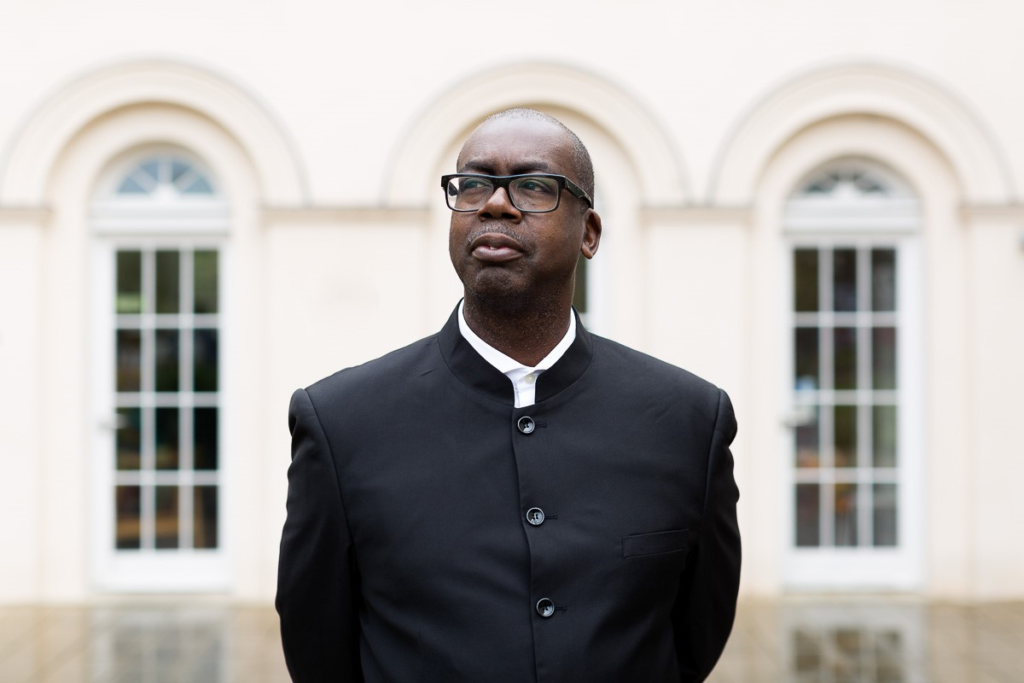To mark Black History Month, the NIHR Oxford Biomedical Research Centre (BRC) sponsored an online talk by the health activist, social commentator and cultural historian, Patrick Vernon OBE on the subject of Inequalities in Healthcare and Research.

In the University of Oxford Medical Sciences Division talk, Patrick considered healthcare inequalities through the lens of Black British history. He said recent events like the murder of George Floyd and the COVID-19 pandemic had thrown up big questions in society such as how the black community had been disproportionately affected by the pandemic, and even the kind of healthcare that we want.
He said it was important that the voice of citizens and communities are heard: “If there’s one thing we’ve learned from the pandemic, it is that we can’t side-line the lived experiences of patients and communities.”
He said researchers had worked to involve communities in their research, but he wanted this to be “taken to the next level of them being part of the co-production process around what type of research is needed, how that research is developed, how it is commissioned and how you assess the impact of that research.”
He noted that the NHS Race and Health Observatory had highlighted growing inequalities in relation to a number of conditions, including mental health, diabetes, heart disease and stroke.
“The history of discrimination is never factored into health research and that needs to change,” Patrick said, highlighting the “lingering aspects of racism in things like diagnoses, particularly around mental health”.
“Why aren’t we doing research that acknowledges that racism and policies – as well as other factors like lifestyle – further compounds people’s health inequalities?”.
Patrick said that there was a need for research into the psychological effects on Black people – and Black communities – of policies around immigration, ‘hostile environment’ and stop and search, as well as the Windrush scandal.
“I would love to work with a group of researchers working with [those affected by the Windrush Scandal] and assess their physical and mental health and how a socially engineered policy has had a direct impact on people’s wellbeing,” he commented.
With reference to Windrush and the Grenfell Tower disaster, he called for more research to be done on community trauma, in addition to individual trauma, and how that could inform the delivery of better services around tackling trauma.
Patrick noted that the HMT Empire Windrush docked in Tilbury in June 1948 shortly before the establishment of the NHS: “We’ve been there from the very beginning. You’d think you’d have more Black people working at senior level. We’ve been there for 70 years but we still have a long way to go.”
He said a number of black academics working in science face racism and discrimination in their careers and ability to access research grants. He said he would like to see the various research councils to try to do more work around structural racism.
“Who is making the decisions about research grants, the commissioning of the research grants, the awarding of contracts? Are the research teams diverse enough – not just about technical expertise and diversity of thought, but about representation? Do they allow people to put forward ideas and suggestions, which could add value to research delivery? I hope the university and NHS working together can look at this and have a brave approach.”
Dr Lorna Henderson, the Oxford BRC’s Senior Manager, said: “The NIHR Oxford BRC is committed to supporting and promoting equality, diversity and inclusion – and as a BRC, we want to make sure that the researchers we support and the patients and members of the public who take part in their research are representative of the whole population.
“We are one of a small number of organisations currently taking part in an NIHR initiative to assess our delivery of race equality in health research. And we have also created a Diversity in Research patient and public involvement group to critically assess our work”
Promoting Equality, Diversity and Inclusion in Research – NIHR Oxford Biomedical Research Centre
“However, we recognise that there is still more to be done as we work towards meaningful equality and inclusion – which is why we were delighted to sponsor this exciting event for Black History Month. Patrick’s perspectives catalysed some important conversations in this field, as well as opportunities for collaboration.”